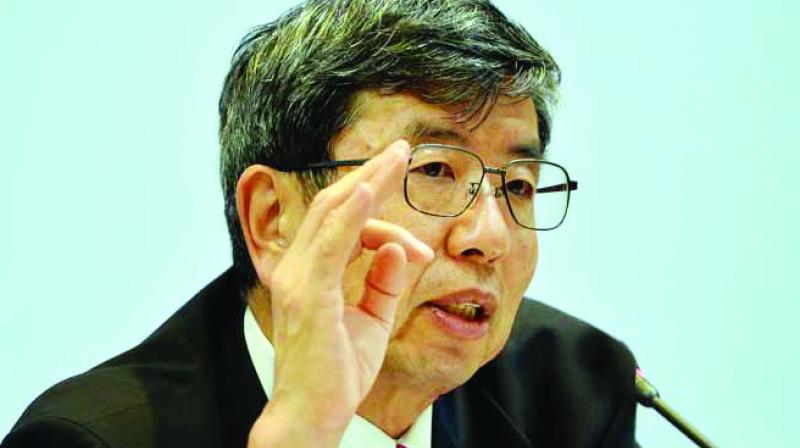Need policies to shield workers: ADB prez

Manila: Asian Development Bank president Takehiko Nakao on Thursday called for progressive taxation and government policies, including universal healthcare, to shield workers from job losses in the advent of newer technologies like robotics and AI.
In the ‘Asian Development Outlook 2018’ released last month, ADB had said that workers need to upskill or face the risk of lower wages and even unemployment as application of new technologies will boost productivity but displace certain jobs.
“We need policies to support people who are behind the technological development and some people may lose jobs as they are not trained. We need to support people income, not the basic income, but to provide the minimum protection of life to the people. Also we need (to provide) universal healthcare to those people and education for kids of those people,” Mr Nakao said at a press conference on the eve of the 51st annual meeting of ADB.
Policymakers need to address the risk of job losses by way of providing adequate training and education and skills, he suggested.
Stating that inequality is growing, he advocated for a “more progressive system of taxation” including levy of individual income tax, inheritance tax and property tax. “I think how to look at tax system to adapt to the new reality over growing inequality is a very important political issue for countries,” Mr Nakao said.
“We cannot just let market decide everything. We need proper redistribution system by taxes. For instance, China needs more stronger individual taxation system to cover more people,” he said.
The Asian Development Bank is formulating its long-term ‘strategy 2030’ to deal with climate change and gender issues as well as the impact of technology on jobs.
The strategy paper would be discussed by the bank’s board later this week, adopted by the end of this year. In the draft ‘strategy 2030’ document, ADB said income inequality has risen in several countries and social disparities remain.
“Close to 80 per cent of the region’s population lived in countries with widening inequality between the 1990s and 2000s. Poverty incidence remains higher in rural than urban areas, and significant disparities exist in school participation and learning achievement and in access to electricity, water, and sanitation.
“Systemic gender gaps in productivity, wages, and income poverty persist, particularly in households headed by women. Growing inequality could undermine social cohesion, endanger social and political stability, and hamper the region’s economic prospects,” ADB said.

